Contributors: Elina Dern (UC Irvine), Finn Kopczynski (UC Santa Cruz), Amber Rivera-Munoz (UC Los Angeles), Harry Shih (UC San Diego), Sarah Zhang (UC Berkeley), Natalia Hackbarth (UCSD) and London Perelli (UC Berkeley), 2024 blog writing contestants
Why would anyone leave their comfortable, familiar environment to fly halfway across the world and live in a completely new and different environment? The answer is as unique as each student. Their stories remind us there’s no “right way” or “right reason” to study abroad; the most meaningful experiences come from following your own path.
Six students from five different University of California campuses shared why they chose to study abroad, and their stories reveal how initial expectations often transform into something far more meaningful than they ever imagined.
To discover my heritage – Elina Dern (UC Irvine)
As a mixed-race person of Filipino and Mexican descent, it’s often difficult to feel like I fit in from a cultural perspective. I grew up in a predominantly White town without many of the family or cultural experiences that other mixed-race Americans have. In my desire to connect with my Mexican heritage, I chose the Field Research in México program to fulfill a dream of visiting the country my abuelita is from.
What I learned
While in México, I took classes, conducted and presented research, and practiced my Spanish language skills every day with the local people. Before studying abroad, I struggled to find the right words to use in conversations, and I was scared to speak Spanish in public for fear of embarrassing myself. Being immersed in the language of my heritage pushed me outside my comfort zone and gave me the practice I needed to improve.
Before studying abroad, I knew little about Mexican society. However, after taking the Contemporary México course, which included weekly talks with notable intellectuals, I learned a lot about Mexican history and politics. Now, I know much more about the country my abuelita is from, and I have friends who share my heritage!
My advice to you
While there are many ways I grew closer to my culture in México, there were many times I didn’t fit in. I didn’t look as Mexican as many of my peers did, and I was not as fluent in Spanish as they were. With perseverance, I gained more confidence in speaking Spanish, and later, I learned that while I was embarrassed and felt like an impostor much of the time, so did my classmates. They told me that they felt less Mexican than the local Mexicans they met!
My advice to you is to be open and persevere.
There is no one Mexican identity, and none of us has the same family story. You are not alone in feeling impostor syndrome. If you go the extra mile to connect with your heritage, you’ll learn much more than you think is possible.
To go everywhere, see everything – Finn Kopczynski (UC Santa Cruz)
Six months after I said goodbye to Ireland, I’m on a two-hour phone call with a dear friend from The Netherlands who I met while on study abroad. The week before, I spoke with all three of my roommates from Germany. I attribute these wonderful connections to the fact that I chose NOT to follow everyone’s advice for me.
Before I went abroad, my friends and family all had the same advice: Go everywhere! See everything!
They encouraged me to visit a new country every weekend and see as much as humanly possible. After all, it was at least a 15-hour plane ride and I should attempt to see as much as possible in the four months I would be overseas.
When I arrived, however, my experience was actually quite different.
What I learned
My initial plan for studying abroad changed quickly after I arrived and started to become close with my roommates and other students in the same accommodations. We were all in the same situation—away from family and friends back home, many of us for the first time ever.
We built a community of friends through regular movie nights, poker with caramels, and many conversations on the rooftop overlooking the city. I bonded with people from all over the world, learned about their hometowns, and explored more locally. Instead of hopping on a flight to another country, I would take the bus to the nearest fishing village (and had some of the best fish and chips in my life in the process).
My advice to you
Three months into my trip, I started to worry that my time abroad was coming to an end. I started to feel like I’d let my parents and friends back home down when the highlight of my weekend was watching a football game with my roommates or taking a long walk with a friend. I wondered if I had been too relaxed with my time abroad. After all, studying abroad is supposed to be the time of your life!
When I spoke with my therapist about these concerns, she said this trip was exactly what I needed.
I realized that one person’s experience studying abroad doesn’t have to match anyone else’s. What I truly wanted out of studying abroad wasn’t to amass a ton of crazy stories to tell my friends back home. What I wanted instead is precisely what I got.
My advice to you is to have your own unique study abroad experience. Your time abroad is truly yours, and there’s no set way to spend it. Do what makes you happiest.
I got seventh place in a pub quiz, watched crazy French movies with a friend, sang karaoke in a language I didn’t speak, and cooked a full Thanksgiving meal with my roommates who had never tasted those dishes. The ways I spent my time abroad weren’t glamorous on paper, and I wouldn’t have any of it differently.
To make lifelong friendships – Amber Rivera-Munoz (UC Los Angeles)
If you’ve seen any TV show or movie set in college, you know the friendships and memories that are made there. Those types of friendships don’t stay in college but travel with you into the future. When I got into UCLA, the thing I wanted most was those long-lasting friendships. I wanted friends who my children would call aunties and uncles.
It wasn’t until I met a student from The Netherlands, a country I always wanted to visit, that I began to consider studying abroad.
What I learned
I learned that I am more independent than I thought I was and that I can fulfill my dreams.
As a transfer student with only two years to spend at a UC, it was tricky, but I found a program related to my major in the country I wanted to visit. As a low-income, first-generation, Mexican-American with a single parent who works two jobs, I had to work hard to be able to afford the program. I applied for scholarships and qualified for financial assistance. I worked many extra hours to save money for food and travel. I had to advocate for eligible courses and keep track of application deadlines, all while attending school full-time, working two part-time jobs, applying for graduate school, and writing essays for scholarships.
Now that my experience is over, I miss waking up to messages from my friends and family on the other side of the world. I also miss the weather changes. One day in The Netherlands, it would be so bright and sunny that I’d need sunglasses; the next day, it could be dark, rainy, and stormy. I miss booking spontaneous trips to countries I only dreamed of visiting.
Most of all, I miss the three friends I made while studying abroad.
My advice to you
At times, you will find studying abroad is hard. You’ll have to figure out your class schedule, learn to take public transit, buy and cook groceries. You’ll learn to connect with new people and learn how to travel on a budget. Your parents and friends won’t be there to help you because they’ll be on the other side of the world. You’ll have to find the solutions to every problem for yourself.
My advice to you is to take the challenge and study abroad.
At times I wanted to cry when the sky would turn gray and I would feel frustrated, but at the end of every day, I learned there is a solution for everything. Studying abroad gave me the chance to see the world differently. It’s a rollercoaster of emotions to live alone in a country where you don’t (initially) know anyone, but I learned that the other students were also experiencing the same feelings I was and we were able to bond over it. I was able to travel to countries I only dreamed of, and I felt independent and happy while I studied abroad. I met people from many different cultures, traveled alone around the world and happily danced in a forest like there was no other way to live.
To learn about another culture – Harry Shih (UC San Diego)
When I applied to study abroad in Japan, I knew I wanted to see Akihabara, ride the trains, and experience the beauty of Japan. As I stepped off the plane in Haneda Airport and took my first step in Japan, I was surprised by a strong feeling of nostalgia. I began to understand the depth of what this program would offer me.
Studying abroad wasn’t just about traveling and getting credits – this would be a time and place where I could truly live and learn about living as a person in Japan.
What I learned
Like many others, I thought I had an idea of what Japan is: a timely and orderly country. Workers are efficient and polite. Trains and buses always come on time. Those biases were etched in my mind, but I soon realized just how superficial that view was.
When I first started meeting my new Japanese friends, it was similar to how knights duel. We circled each other, prodded into our backgrounds, tested our tastes and preferences just enough to start a connection. The longer we hung out together, ate meals together, and explored what Japan had to offer, we became closer until we all eventually became true friends. We started to intuitively understand what we liked and disliked, we shared our hobbies and desires, and of course our jokes and secrets. It was at this point that the wall of assumptions and stereotypes began to break.
My friends weren’t orderly, efficient robots; they were just like me. They loved to party, laugh, and even cry. I learned that while a country may operate in a certain way, it is the people who are the ones who live and breathe in that country and those people are human just like the rest of us.
My advice to you
We all have learned biases. I come from a Chinese heritage and was unfortunately taught to view people from Hong Kong and Taiwan negatively. In Japan, a good number of my friends were from those countries.
My advice to you is this: fly halfway across the world and see that people are not all that different from you. With every moment and every laugh, you will learn to break down barriers.
In Japan, I saw past my biases and realized the true humanity that lives within us all. The more I laughed and lived, the more this message was drilled into my head until it became like a memory that was always there.
To live without regret – Sarah Zhang (UC Berkeley)
Until my semester abroad, I had not left the Bay Area in 17 years and from the time I stepped foot on the Berkeley campus, I promised myself I would take advantage of studying abroad in college.
With each passing year, however, it grew harder and harder to imagine leaving the cozy home and community of family, friends, and routines. In my junior year, I applied to study abroad in Berlin, but withdrew at the last minute, convinced I needed to focus on more pressing commitments like academics, an internship, and continuing to foster my personal and professional relationships.
As I registered for classes for senior fall, this question continued to gnaw at me: how could I confidently settle down at 22 without at least trying to experience life elsewhere?
Luckily, applying for study abroad was a straightforward process. I could still graduate on the timeline I had agreed to with my campus advisors and was sure that any remaining requirements could be fulfilled in Berlin. The hardest part was grappling with the fact that I would miss out on milestones I envisioned experiencing with my friends at the end of our four years at university.
What I learned
Landing on European soil for the first time, I started the process of building a new life abroad. I made friends with other Californians and classmates from every corner of the world. Together, we romped around the city looking down every alleyway and around every street corner in search of new cultural sites, bars, and train stations to make not-so-new anymore. I discovered that somewhere in those 17 years of living in my Bay Area bubble, I’d lost the sense of exploration and adventure. I’d lost the urgency to learn from and challenge myself in the unfamiliar.
The process of rebuilding a live in a completely foreign place among strangers in a culture that is in many ways completely opposite of your own is exciting, terrifying, gratifying and strange.
My fellow companions on the study abroad journey described the first few weeks as being “freshman year, all over again.” And they weren’t wrong!
I can take that analogy farther too – studying abroad feels like being a kid all over again! In the supermarket where I can’t read any of the labels, in class where I’m learning how to introduce myself (Ich heiße Sarah!), every moment of every day is strange, different, and wonderful.
My advice to you
Studying abroad is full of challenges. While I was learning what it was like to be confused in a foreign language, my friends back home were celebrating the end of college on the campus we’d called home for four years.
While spending part of my senior year abroad, I learned that milestones may end up looking differently than what we imagined.
My advice to you is this: it’s never too late to actively decide what’s best for you, even if it means going against the grain of tradition.
Trading spring graduation season with old friends for memories of living in Berlin and traveling across Europe with new friends is something I had to accept; however, making this decision despite the tradeoff also meant I was taking agency of my own life. I was deciding what was best for me, and ultimately, I’m very happy that I spent my final semester in Germany. To know that I found peace and structure in a place so completely different from California, amid the chaos of relearning everything I once took for granted, has given me the confidence to take more risks, to adventure outside the known. The process was difficult, and it was hugely rewarding.
I feel that I can now enter ‘true’ adulthood as I have gained a more nuanced understanding of what I want from my life. It is never too late to seek out adventures and find the endless possibilities that come with it.
To face my fears – London Perelli (UC Berkeley)
My first two years at Berkeley were hardly smooth sailing. Instead, they were marred by unsuccessful experiments with my hair, complicated relationships, and sub-par grades. I had outgrown the Socal town where I grew up but struggled to fit in at Berkeley.
In an attempt to try something different, I took a summer internship in Washington, DC, but my ‘big girl’ dreams of a successful internship I could brag about on LinkedIn fell flat along with my hopes. I found myself melting in the summer heat, unsure whether the moisture streaming down my face was sweat or tears.
Back at Berkeley, I chatted with my friends who had studied abroad. They all said the same thing: it was the best time of their lives, and they were thrilled they went through with it. I started to consider whether it was worth it for me to try. After all, the first two years at the greatest school in the world had nearly sunk me. Why would I prefer to stay in my comfort zone if it was miserable?
Feeling lost and confused, I called my younger brother and told him how frustrated and afraid I was. He told me that he’d just learned about this thing called sunk cost and reminded me that I wouldn’t get back those two years by denying myself the opportunity to go to Paris. That was when it clicked.
I was afraid of change, but I was also afraid of things remaining as they were, which wasn’t great. So I decided to go.
What I learned
If I could navigate my hardest days and adjust to a brand new country and city, with a distinctly different culture and language, I could endure much more. That realization brought hope for the changes I would face abroad, and I eagerly embraced the opportunity.
My Mom traveled with me to Paris to help me settle in. Despite my 50-day Duolingo streak, we found the language barrier quite challenging. I wondered why I ever thought it wouldn’t be a big deal.
Eventually I started to get the hang of things. The weather gave me the opportunity to wear layers in ways I’d never been able to do in California, so I began experimenting with my look. After all, I was in Paris!
When I found myself doom-scrolling through the study abroad experiences my peers were having, I wondered how they could possibly afford to go on a new vacation every weekend, and I learned to have wonderful weekend trips on a budget. I implemented a routine that included Sunday card games, Monday trivia, and the occasional Thursday night karaoke. I became obsessed with street art and indulged in a new boulangerie every day.
On warm days in April, I completely dropped all my responsibilities and devoted myself to eating cheese and lounging in the park with friends. My fears of being lonely faded away, and when I found myself alone, I learned to take myself on a long walk, to eat a pain au chocolat, and absorb the pace of those around me.
I’ve always been hesitant to say the h-word to describe my current state, fearing I might jinx it, but when the time came finally to leave, I found myself sobbing at the airport. I was so emotional that someone in the security line sneaked a packet of tissues into my backpack pocket.
My advice to you
The best metaphor for my study abroad experience is that I’m living in a video game, and I just unlocked access to an important part of the map—and it keeps expanding. The world before study abroad felt stifling and constricted; the world after study abroad is so much bigger than anything I ever knew, and I can find a place for myself anywhere in it.
My advice to you is this: don’t cry when it’s over, smile because it happened.
However cliché that sounds, I can’t help but think of the love and joy I left behind in Paris. I boarded the plane more myself than I have ever been before. I have plans for a future in Paris and I’m determined to become fluent in French.
To see home with new eyes – Natalia Hackbarth (UC San Diego)
When you’re a local, you get to impress everyone with the places you grew up. It’s fun to share, but I became jealous of the awe in my friends’ eyes when they explored San Diego for the first time. Having lived here since I was four, I regretted going to college in my hometown and was beginning to think that I wouldn’t get to live new experiences like my out-of-city peers if I stayed.
My decision to study abroad in Oslo, Norway was made impulsively after my efforts to transfer universities fell through. What I discovered there wasn’t just about Norway—it was about how to see any place, even home, with fresh eyes.
What I learned
In Oslo, I promised myself to avoid doing things I could do in San Diego. That motivation drove me to make the most of every day. I found a sledding hill that later became a sunbathing spot, took spontaneous trips to small towns like Lillehammer, and celebrated both Norwegian Constitution Day and Dutch King’s Day with new friends.
But my biggest takeaway wasn’t about being in Norway—it was about the mindset of international students. They approached each day with curiosity and intention, turning ordinary moments into adventures. I learned that being bored is only a mindset, and that any place can feel new if you approach it like a visitor.
My advice to you
Whether preparing to study abroad or returning home afterward, treat where you live like a study abroad destination. Make a bucket list of things you haven’t done or haven’t done in years. Don’t shy away from tourist attractions—if you break through your own judgment, being a tourist in your hometown is surprisingly fun.
Seek out cultural events – university clubs and local organizations often host celebrations of traditions from around the world. Take day trips to nearby towns—I discovered one of my favorite places in California, San Clemente, during a simple bathroom stop on the way to LA.
Most importantly, remember that the study abroad mindset isn’t about where you are but how you see where you are. Every place holds the potential for discovery if you approach it with curiosity and openness.
Just as unique as the reasons students choose to study abroad are the unexpected lessons they learn outside their home country. Like these:
- Micah learned that cultural identity isn’t something that must be inherited—it can be something you create too.
- Alyson asked herself five critical questions across five different cities and learned more than she ever knew about herself before.
- An unfortunate misstep led to a broken wrist in Barcelona that taught Lila resilience.

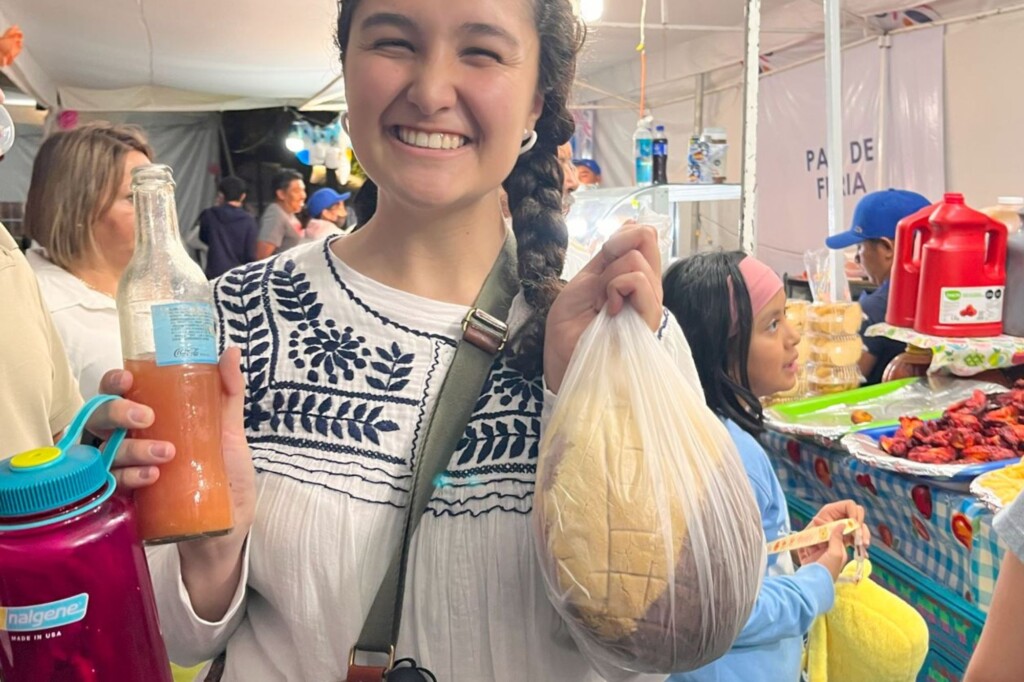
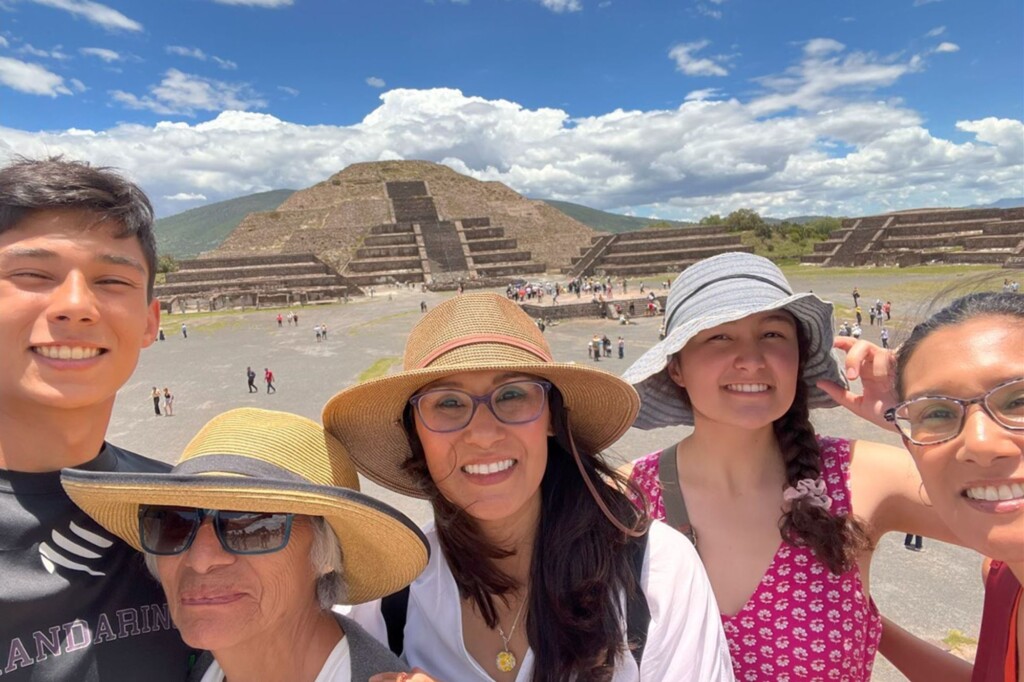
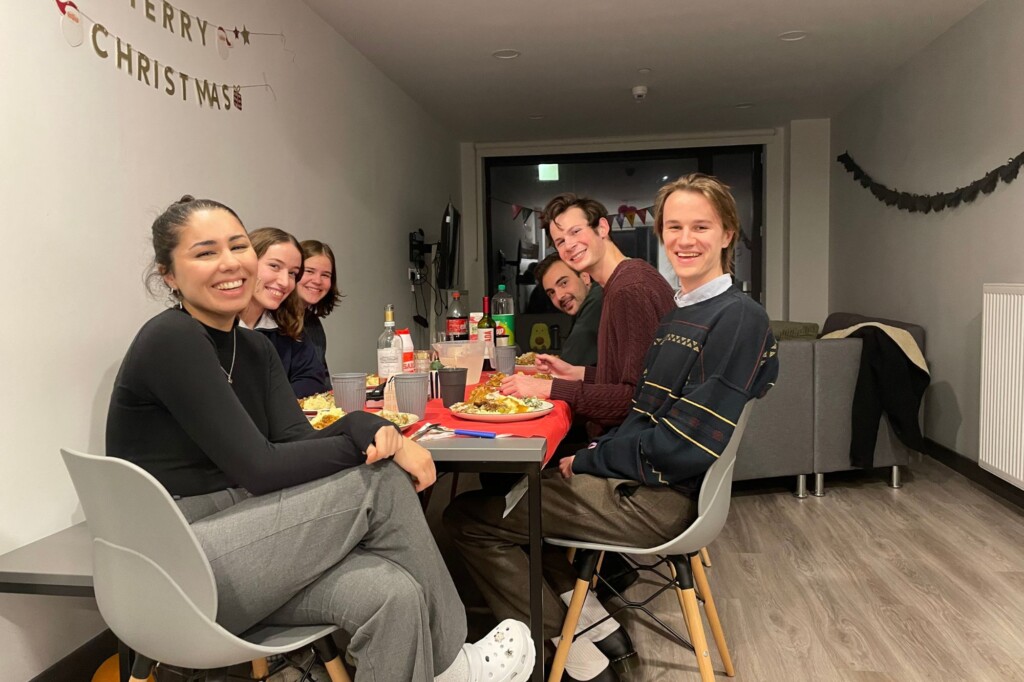

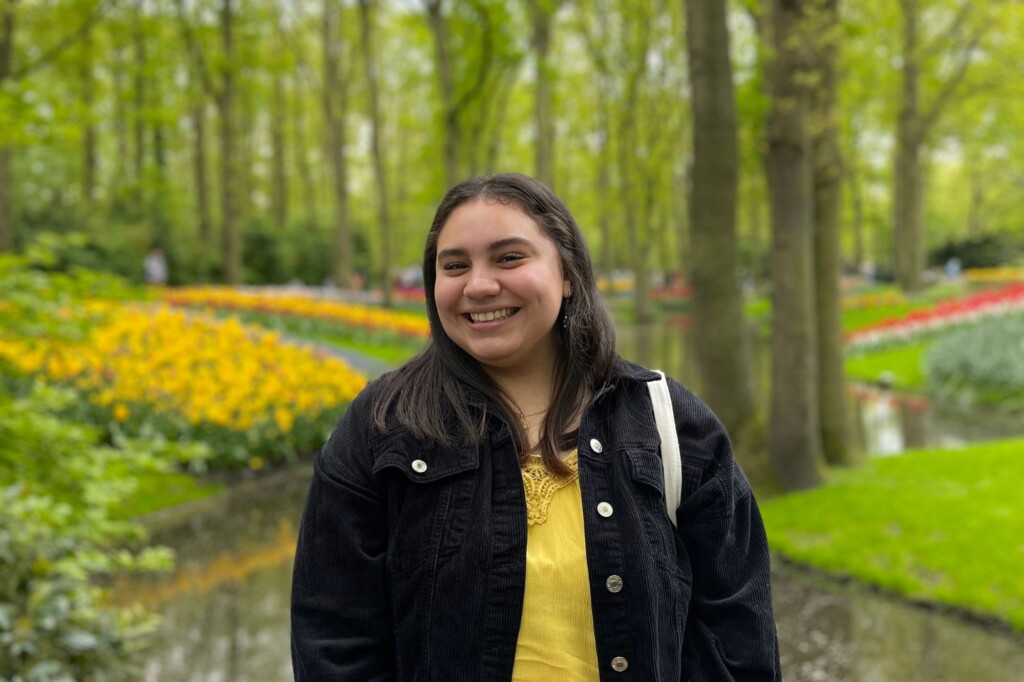
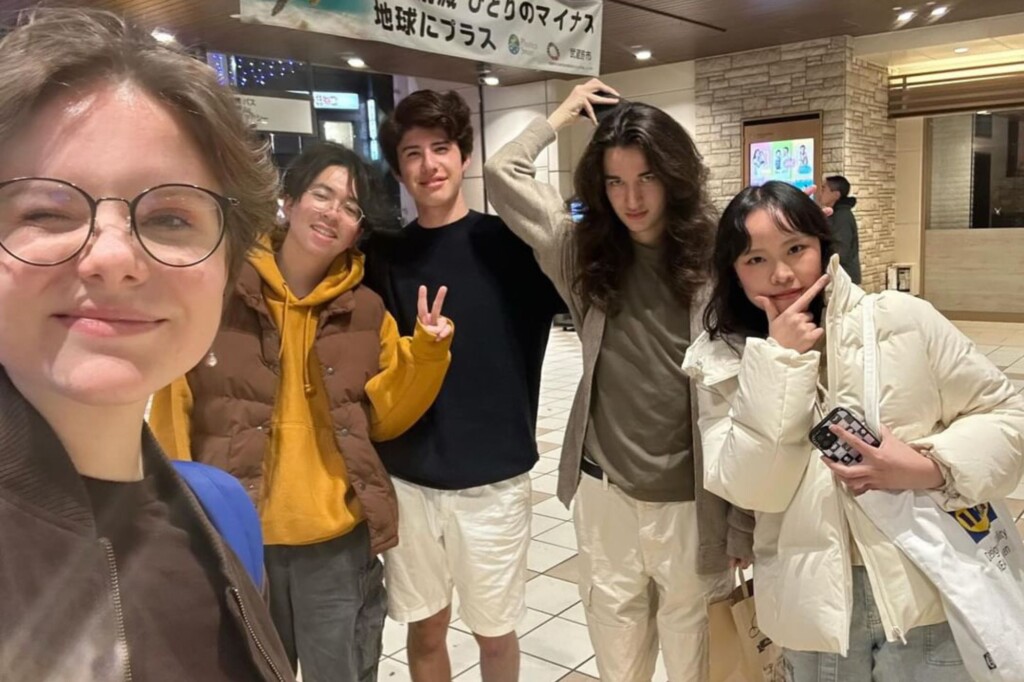
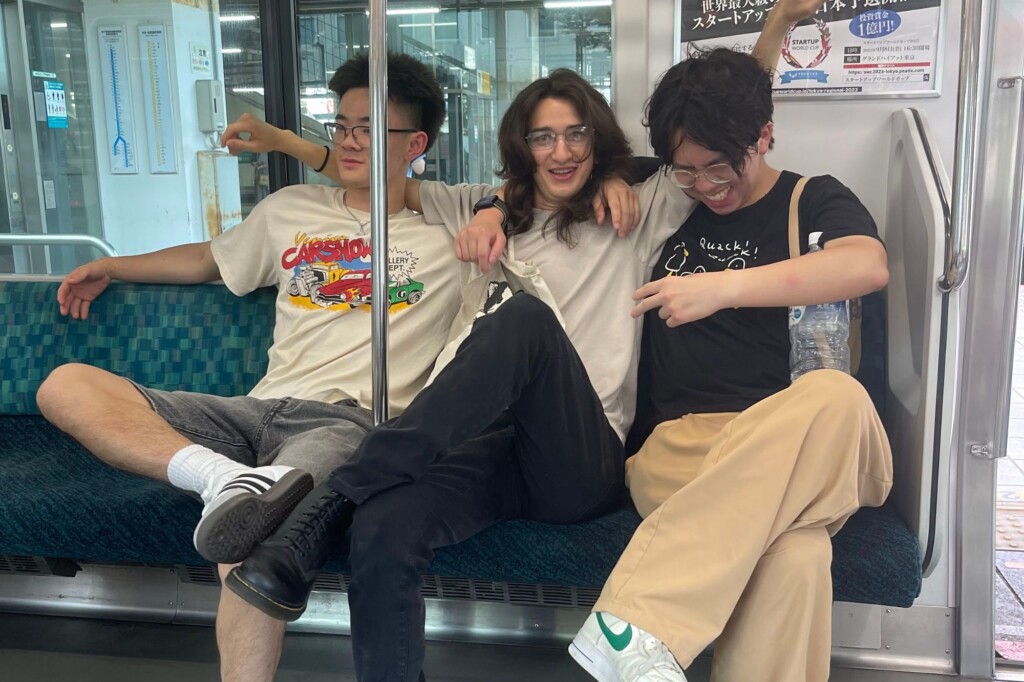
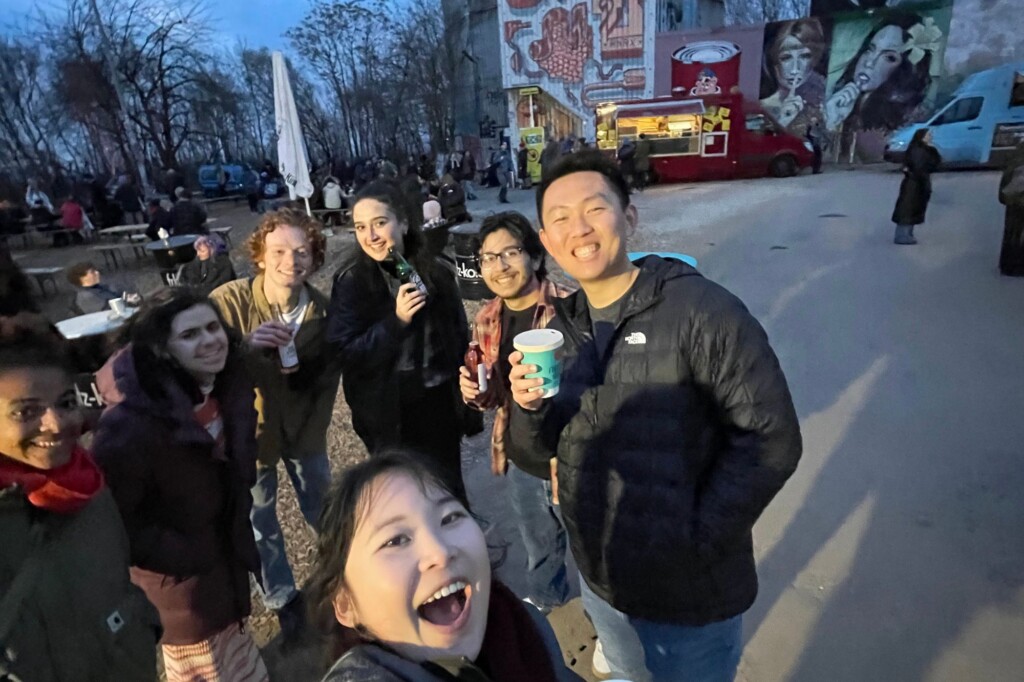
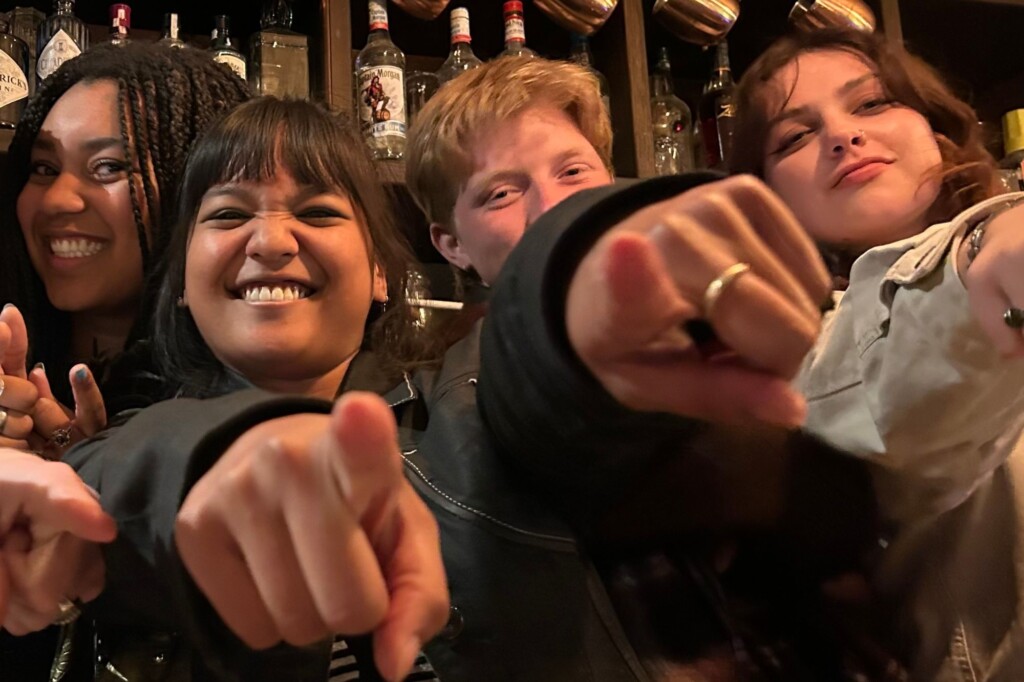
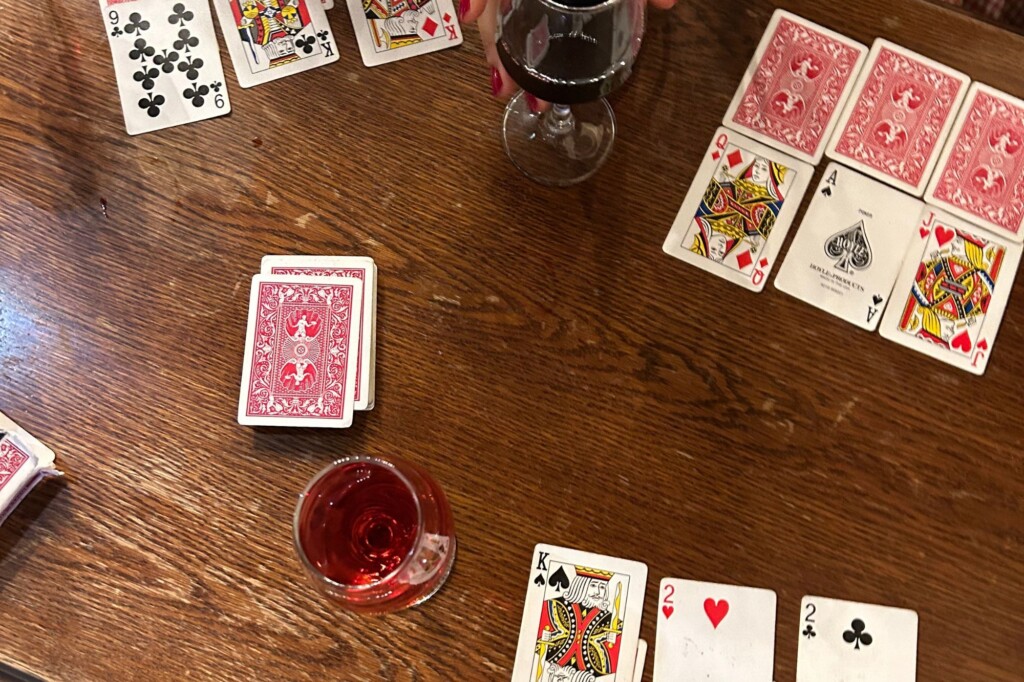
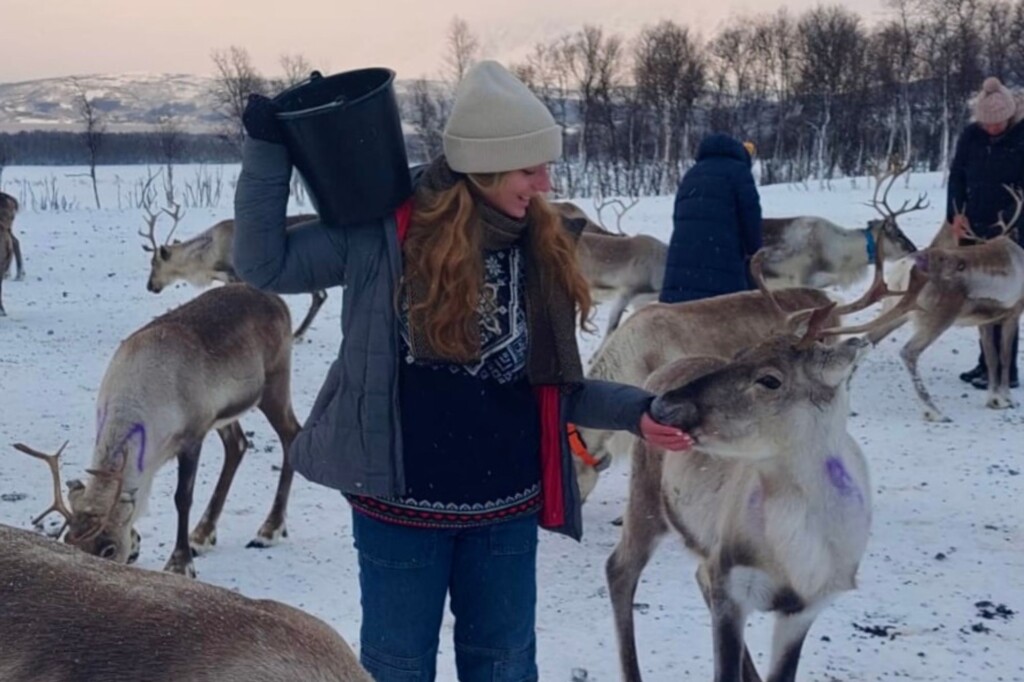
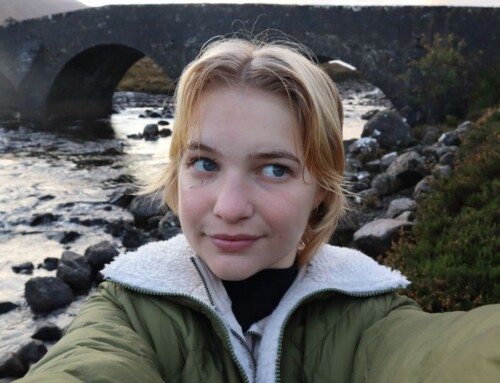

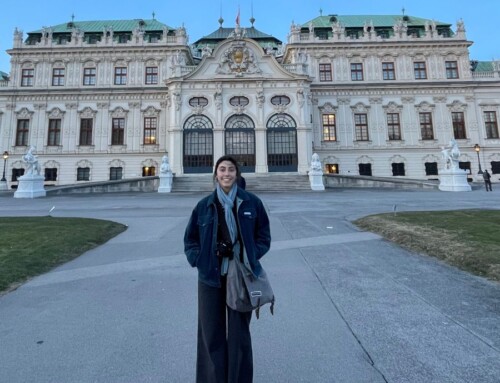


Leave A Comment